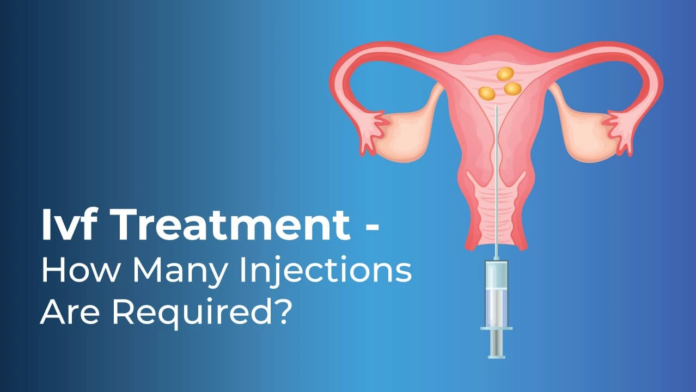The journey toward parenthood can sometimes require medical assistance, and In Vitro Fertilization (IVF) has emerged as a beacon of hope for many couples facing fertility challenges. If you are considering this procedure, knowing what to expect at each step of the treatment can help ease anxiety and prepare you mentally, emotionally, and physically. The Best IVF Hospital in Patiala offers advanced IVF solutions and personalized care to guide patients through this transformative journey. Here are eight key stages to help you understand what happens at each phase of IVF treatment.
1. Initial Consultation and Assessment
The IVF process begins with a detailed consultation with a fertility specialist. This phase is critical for assessing your overall health, identifying fertility challenges, and setting a treatment plan. Blood tests, ultrasounds, and semen analysis are common diagnostic steps. Your fertility expert, often a seasoned Gynaecologist in Patiala, will review your medical history and discuss any factors affecting conception, such as lifestyle, hormonal imbalances, or prior pregnancies.
2. Ovarian Stimulation with Hormonal Injections
During the second phase, you will undergo ovarian stimulation. Typically lasting 10-12 days, this step involves self-administered hormonal injections to stimulate the ovaries to produce multiple eggs, rather than just one. The progress of follicle growth will be monitored through ultrasounds and blood tests. Fertility clinics carefully control the dosage of hormones to minimize side effects and avoid complications like ovarian hyperstimulation syndrome (OHSS).
3. Monitoring and Adjustments
Throughout the stimulation phase, you will have multiple visits to your clinic for monitoring. Blood tests track hormone levels, while ultrasounds ensure that the follicles containing eggs are growing at an optimal rate. This phase allows the fertility team to adjust the medication dose if necessary. Staying in close contact with your healthcare team is crucial to maximizing the chances of success. Your doctor will advise you on diet, hydration, and rest to optimize your body’s response to the treatment.
4. Triggering Ovulation
Once the follicles reach the desired size, a trigger injection is administered to stimulate the final maturation of eggs. This injection, typically given 36 hours before egg retrieval, mimics the body’s natural ovulation process. The timing of the trigger shot is precise, as it ensures that eggs are at the right stage of development for collection. Missing this injection or administering it incorrectly can impact the entire cycle, underscoring the importance of following your healthcare provider’s instructions carefully.
5. Egg Retrieval Procedure
Egg retrieval is a minor surgical procedure performed under mild sedation or anesthesia. The fertility specialist uses an ultrasound-guided needle to extract eggs from the follicles. While the procedure is minimally invasive, it may cause mild discomfort or cramping afterward. Patients are usually advised to rest for the remainder of the day. The retrieved eggs are taken to the laboratory, where they are evaluated for quality and prepared for fertilization.
6. Fertilization and Embryo Development
Once the eggs are retrieved, they are combined with sperm in a controlled environment in the lab. This step can involve either conventional IVF, where eggs and sperm are mixed, or Intracytoplasmic Sperm Injection (ICSI), where a single sperm is injected directly into an egg. Fertilized eggs develop into embryos over the next five to six days. Embryologists closely monitor the embryos during this time to ensure proper growth and development. Not all eggs will fertilize or develop into viable embryos, so this phase requires patience and careful attention.
7. Embryo Transfer
After successful fertilization, the best-quality embryo(s) are selected for transfer. The embryo transfer procedure is simple and typically painless, similar to a pap smear. Using a thin catheter, the doctor transfers the embryo into the uterus. Depending on individual circumstances, a fresh or frozen embryo may be used. In most cases, only one or two embryos are transferred to reduce the risk of multiple pregnancies.
8. Post-Transfer Care and Pregnancy Test
After the embryo transfer, you will be advised to rest and avoid strenuous activities. However, resuming light daily activities is generally encouraged. Around two weeks after the transfer, you will take a blood test to determine whether the procedure was successful. This waiting period can be emotionally challenging, but staying positive and following your doctor’s recommendations are crucial. If the test is positive, further monitoring ensures a healthy pregnancy.
Conclusion
Understanding each step of the IVF process can make the journey less daunting and more manageable. From the initial consultation to the final pregnancy test, every phase is carefully designed to optimize your chances of success. The experienced team at the Best IVF Hospital in Patiala ensures personalized care and advanced treatment options tailored to your needs. With the support of a compassionate Gynaecologist in Patiala, you can navigate this journey confidently, knowing you are in trusted hands.



